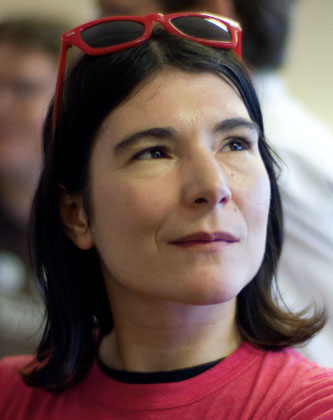In the wake of the Syrian uprising, in March 2011, we found ourselves overwhelmed with a treasure trove of user-generated content produced by Syrian citizens trying to give their account of what was happening in Syria. All of a sudden, a massive amount of information, data, videos, stories and pictures, were being shared on the internet mostly by anonymous users; a truly unprecedented phenomenon for a country where independent news reporting had always been a critical issue.
However, this content was, for the most part, out of context. Two factors created this lack of context of post-uprising content.
Firstly, the nature of the platform where the majority of this material was produced and shared, i.e. Facebook. As a closed environment, Facebook allowed only those who were already networked with or somehow related to the content producer to access that same content. Besides this, the Facebook interface did not allow a proper process of curating the content, which would imply translating, tagging and archiving in order to afford easier access.
Secondly, the subjects who had suddenly found themselves capable of producing and sharing content were not professional media makers. They were citizens who exchanged information and status updates while not being fully aware of a news reporting process in the making; which would have then required them to frame this content within a proper historical, geographical, and geopolitical setting in order to make sense of it.
As a group of activists, academics, and journalists working from Syria, on Syria, our primary concern when we launched SyriaUntold in 2012 was to give a context to this ever-circulating user-generated content being produced by Syrians. SyriaUntold would have selected, translated, tagged, archived, and edited grassroots generated media before delivering it to a wider public, both in Arabic and English. Instead of being consumed as isolated, loosely connected pieces of information, these media would have found a proper framework that puts them in their historical, cultural, and geopolitical context. SyriaUntold would also focus on setting up a proper archiving system for this material. The never-ending circulation of content over social networking sites results in the fragmentation and dispersal of this valuable material. A proper archiving system, together with robust context building, can be used to overcome the problems that arise within a web 2.0 environment.
Therefore, after several months of animated discussions held both on Skype and through face-to-face meetings, we decided that we would focus our work on curating a specific part of this user-generated content, the part that goes largely “untold”. We had already reached the stage where the Syrian uprising was narrated in military-terms only, whether focusing on the regime's side, or on the armed opposition. The world, and the media, both in Arabic and in English, quickly forgot the “civil” nature of the uprising. Whether individuals or loose groups of activists, the role of those who had started the protest movement in March 2011 by demanding civil rights and calling for the rule of law instead of the absolute power of Syria's regime and its security services, was being dismissed or marginalised, while the narration of the crisis became both militarized and internationalised, escalating both processes.
Accordingly, SyriaUntold deliberately decided to focus precisely on the marginalised stories generated by these people and movements who are engaged in civil disobedience, non-violent resistance, and who stay committed to civil activism against all the odds. We aim at shedding light on a third subject which is neither the regime nor the armed groups of rebels. We focus on Syrian civil society, key, we believe, to determining Syria's future. Understanding this category, what it does, what it thinks, how it acts, what it produces and dreams of, cannot be dismissed. SyriaUntold hopes to make an important contribution in releasing sn interpretation of the unfolding events in Syria that is more nuanced and balanced towards civil society, which still constitutes the majority of the population in the country.
In our unique upcoming cooperative project with openDemocracy, entitled 'Looking inside the uprising', we hope to add a further step in this process of recognizing the importance of Syrian civil society and its ongoing struggle; and to reach out to a wider audience with original stories from Syria that have so far remained untold.




